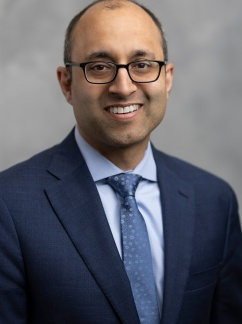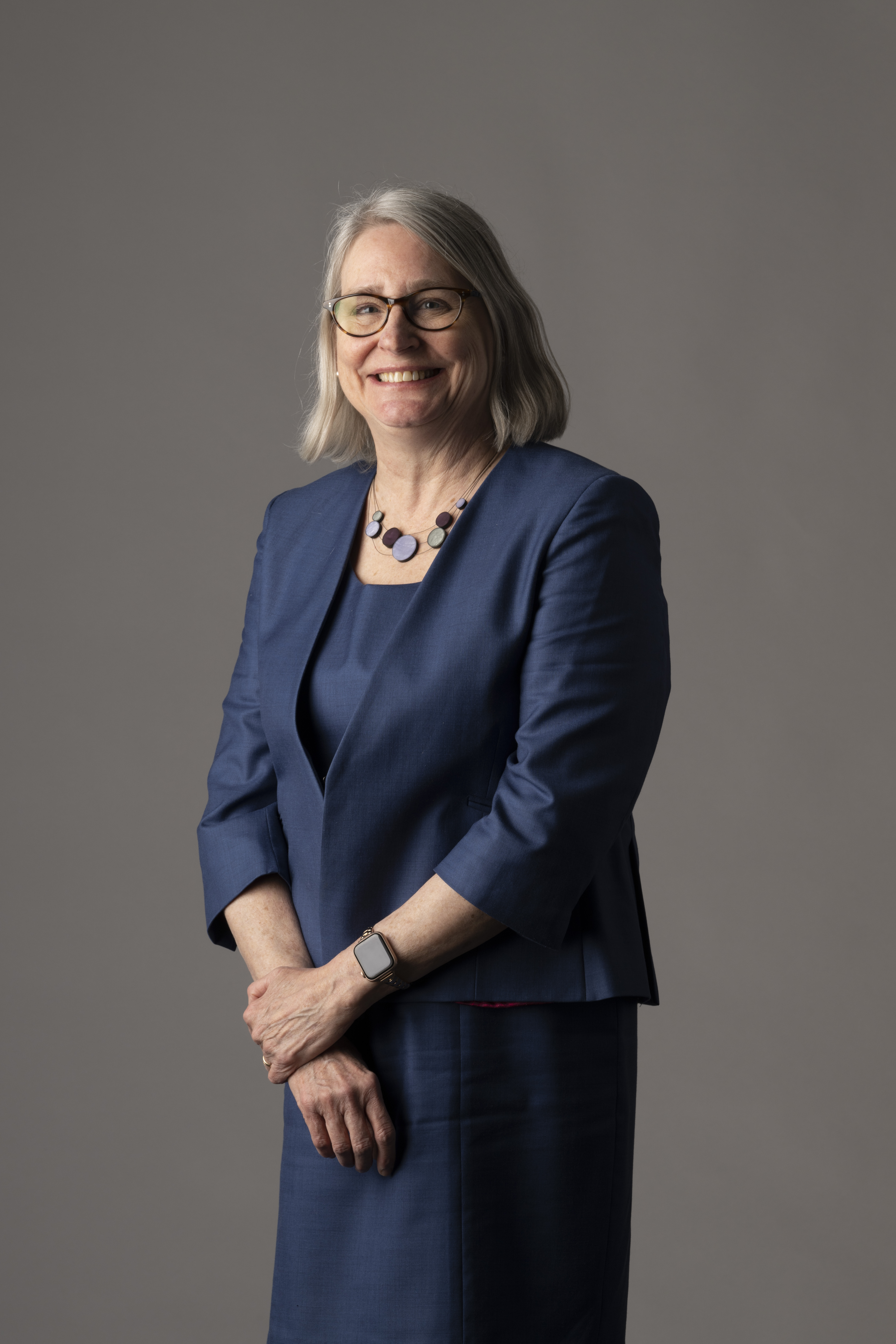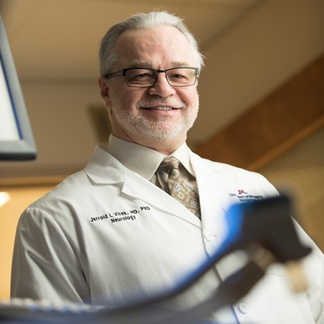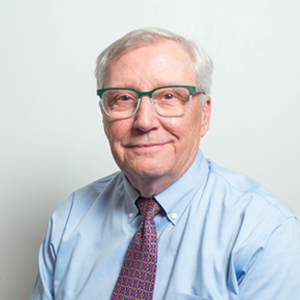Department Heads


Bio
As an undergraduate student at University of Washington-Seattle, working alongside Dr. Ake Lernmark deepened my interest in medical research. After graduating, I received a two-year medical research-training award at the NIH, where under Dr. Elise Kohn at NCI, I studied the signaling pathways and biological functions of granulin-epithelin precursor (GEP) in ovarian cancer. I completed my Ph.D. at the University of British Columbia in Dr. James D. Johnson's lab, focusing on the autocrine signaling mechanisms of insulin on β-cells. During my postdoctoral training with Dr. Ernesto Bernal-Mizrachi at the University of Michigan, I gained extensive experience in β-cell development, in vivo metabolic phenotyping of diabetes models, and understanding how adverse intrauterine environments (e.g., maternal low-protein and high-fat diets) affect health.
Our current lab at UMN aims to understand how early life exposure influences susceptibility to obesity and diabetes, which are underlying causes of cardiovascular disease and cancer. Our lab’s long-term goal is to break the cycle of diabetes through a multi-pronged research approach focused on prevention and cure.
Research Summary
Obesity and Diabetes are complex diseases that significantly impact many individuals and impose substantial costs on our society. As a team, our lab aims to understand how placental insufficiency induced by factors such as maternal obesity, inflammation, and diabetes affects offspring's beta-cell function and susceptibility to metabolic diseases. In particular, we investigate the roles of nutrient proteins like mTOR, AMPK, and OGT in beta-cell development, function, and regeneration using techniques ranging from epigenetics and biochemistry to in vivo phenotyping of glucose metabolism. Finally, I strive to provide an exceptional training and mentoring environment for my trainees, preparing them to achieve their full potential and tackle medical research challenges.
Research Interests
- Placental Biology
- Placental Inflammation
- Pancreatic Islet Biology
- Insulin Resistance, Obesity, Diabetes and Metabolism
Honors and Recognition
Contact
Address
3-142 CCRBCancer and Cardiovascular Research Building
Minneapolis, MN 55455-0001
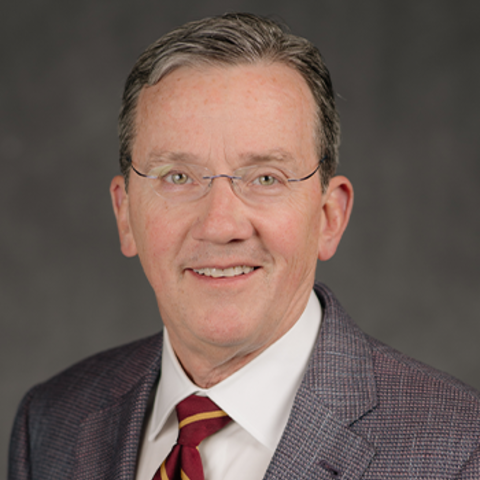
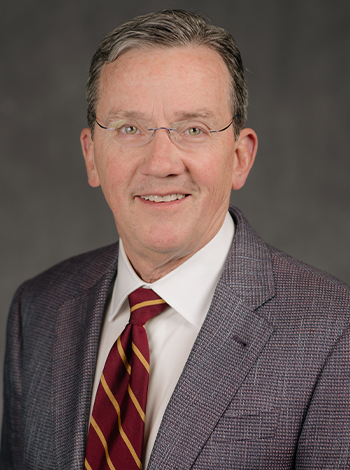
Bio
Dr. Clohisy is a professor and chair of the Department of Orthopedic Surgery at the University of Minnesota and a member of the University of Minnesota Cancer Center. He specializes in musculoskeletal oncology with a focus on both primary and metastatic cancers of bone and the management of musculoskeletal problems in hemophilia.
His clinical research focuses on the effect of surgical treatment of skeletal metastasis on health status, and he has also researched the cellular mechanisms of tumor osteolysis and mechanisms of bone cancer pain. He is committed to advancing all levels of musculoskeletal education and has interest and experience in developing both outstanding community orthopedic surgeons and orthopedic clinician scientists. His research program has had NIH funding for 23 consecutive years and he currently leads an Academic Health Center NIH training grant for graduate and past doctoral students.
Expertise
- Orthopedics
- Cancer
Awards & Recognition
- Best Doctors in America®: 2007-2010, 2011-2012, 2013
- Mpls.St. Paul Magazine "Top Doctors:" 2009-2010, 2012-2015, 2020, 2024
- U.S. News & World Report Top Doctor: 2012
- Minnesota Monthly "Top Doctors:" 2014, 2018, 2020
Publications
View Dr. Clohisy's Publications on PubMed
Professional Associations
- Chair of the Department of Orthopedic Surgery
- Elected member of the University of Minnesota Physicians (UMP) Board of Directors, serves on the UMP Executive committee and Chairs the UMP Clinical Strategies Committee
- Member, American Board of Orthopaedic Surgery Board Exam Committee
- Member, American Orthopaedic Association Critical Issues Committee
- Member, American Academy of Orthopaedic Surgeons Communicative Cabinet and Council on Education.
Research Summary
Research Interests
- Bone and Soft Tissue Neoplasms
- Osteolysis
- Osteoclasts
- Mouse Genetic Engineering
- Bone Cancer Pain
- Experimental Sarcoma Models
Clinical Summary
My passion is bringing cutting-edge techniques, compassion, and hope to orthopedic oncology patients and their families. I listen to my patient’s needs and work with them to create a care plan tailored to their unique situation. I enjoy getting to know my patients and improving their quality of life.
Board Certifications
American Board of Orthopaedic Surgery
Clinical Specialties
- Musculoskeletal oncology with focus on both primary and metastatic cancers of the bone
- Management of musculoskeletal problems in hemophilia
Clinical Interests
Musculoskeletal oncology with focus on both primary and metastatic cancers of the bone; Management of musculoskeletal problems in hemophilia
Hospital Privileges
University of Minnesota Masonic Children's Hospital; University of Minnesota Medical Center
Contact
Address
M Health Clinics and Surgery Center, 909 Fulton St SE 4th Floor, Minneapolis, MN 55455Administrative Contact
Connie Butterfuss
612-626-2817
butte152@umn.edu
Fax: 612-273-7959
Clinic Information
M Health Fairview Clinics & Surgery Center
909 Fulton Street SE,
Minneapolis, MN 55455
Orthopedic Surgery (4th Floor) | (612) 672-7100
Mailing Address
University of Minnesota
Department of Orthopedic Surgery
2450 Riverside Avenue South
Suite R200
Minneapolis, MN 55454
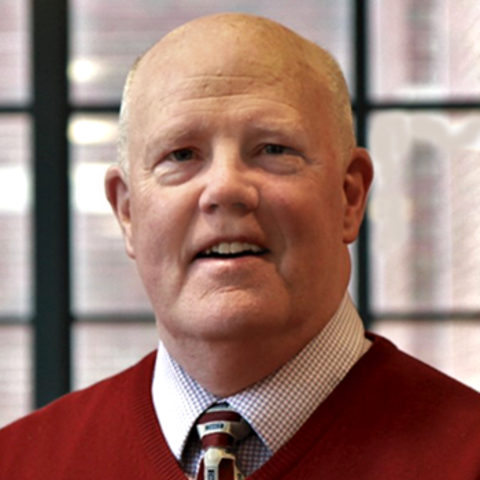
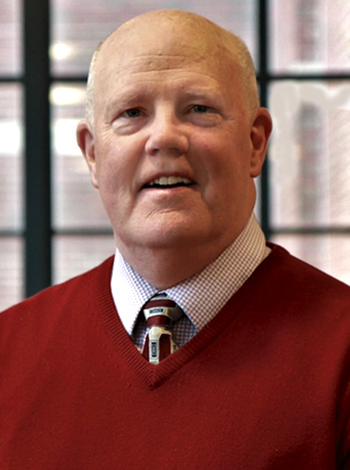
Education
Fellowships, Residencies, and Visiting Engagements
Licensures and Certifications
Honors and Recognition
Professional Memberships
Contact
Address
420 Delaware Street, SE, MMC 292, Minneapolis, MN 55455Administrative Contact
Laura Geffre-Rick
Executive Assistant
Email: geffr019@umn.edu
Phone: 612-301-6040
Fax: (612) 625-9411
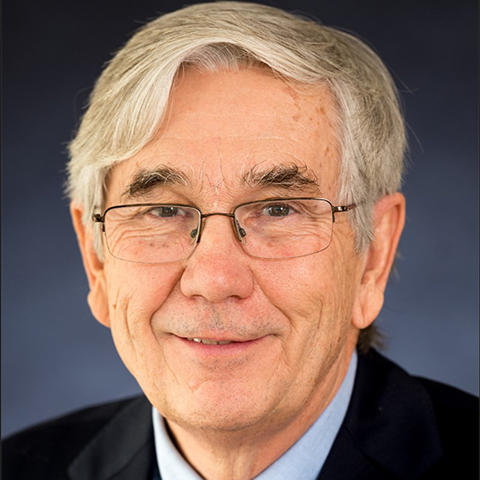
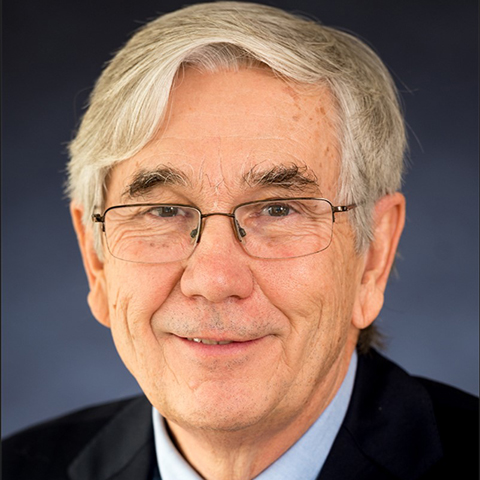
Research Summary
Neurophysiology of cerebellum and motor cortex. Our laboratory is trying to understand how single neurons and populations of neurons encode the information needed to plan and execute limb movements. Our goal is to decipher how the brain represents different movement parameters and then uses this information to control movements. We are investigating both kinematic and dynamic movement parameters, recording the activity of neurons in the cerebellum and cerebral cortex in primates during motor behaviors. A variety of movements are studied, including reaching to targets in space, tracking moving targets, the learning of new visuomotor relations, and hand movements. Using analytical and statistical techniques, we sort out how information about movement parameters is embedded in the neuronal discharge.At a higher level of integration, we are interested in how information in the brain is represented spatially and temporally in populations of neurons. In the cerebellum we are using flavoprotein fluorescence and Ca++ dyes to visualize neural activity. Using epifluorescence and multi-photon imaging, we are able to construct detailed spatial and temporal maps of the neuronal activity in the cerebellar cortex. One major question is to understand the spatial patterns of activity generated during behavior. We are also using optical imaging to examine the abnormalities in the cerebellar cortex in the spinocerebellar and episodic ataxias.
Contact
Address
421 Lion Res2001 6th St SE
Minneapolis, MN 55455
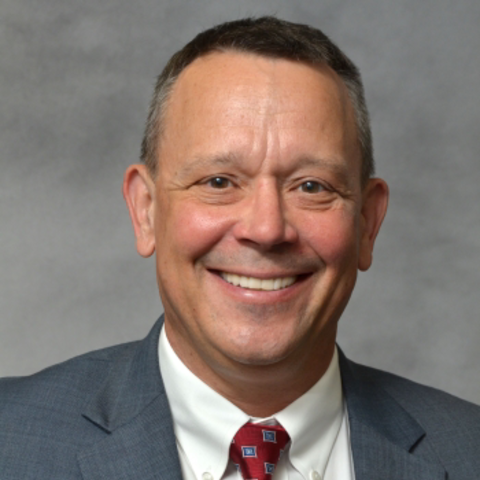
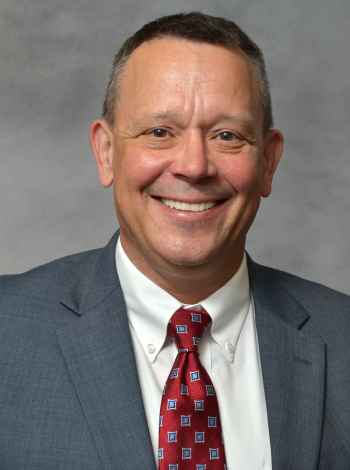
Bio
Dr. Fischer earned his medical degree at Uniformed Services University of the Health Sciences and completed Residency training at Wright State and Urogynecology Fellowship training at Indiana University. He has served in numerous leadership roles including Urogynecology Fellowship Director, Ob/Gyn Residency Director and served as the Department Chief of one of the largest Ob/Gyn departments in the Department of Defense. He is currently serving as Faculty for APGO's Surgical Scholars Course and as an Oral Board Examiner, ABOG. He was honored to be named the Professor of the Year by the Junior Fellows of Armed Forces District of American College of Obstetricians and Gynecologists. His research interests include the effects of pregnancy, labor, and delivery on the pelvic floor and surgical education.
Dr. Fischer transitioned from a 29-year career as an Air Force physician to start a new Division of Female Pelvic Medicine and Reconstructive Surgery in the Department of Obstetrics, Gynecology and Women's Health. He began his new role in October 2017 and his clinical practice sites will include Women's Health Specialists Clinic and M Health Clinics & Surgery Center.
Clinical Summary
Schedule an Appointment:
Minneapolis - M Health Fairview Women's Clinic - Riverside, Appointments: 612-273-7111
Edina - M Health Fairview Center for Women, Appointments: 952-836-3645
Education
Fellowships, Residencies, and Visiting Engagements
Licensures and Certifications
Contact
Address
Minneapolis, MN 55455Department of Obstetrics, Gynecology and Women's Health
420 Delaware Street SE, MMC 395
Administrative Contact
Brenda Olson
Administrative Phone: 612-626-3111
Administrative Email: ols00323@umn.edu
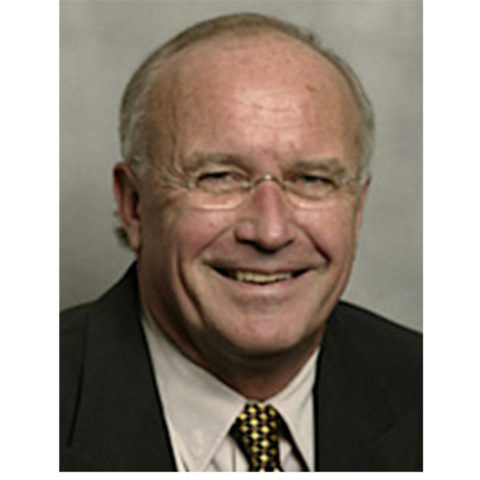
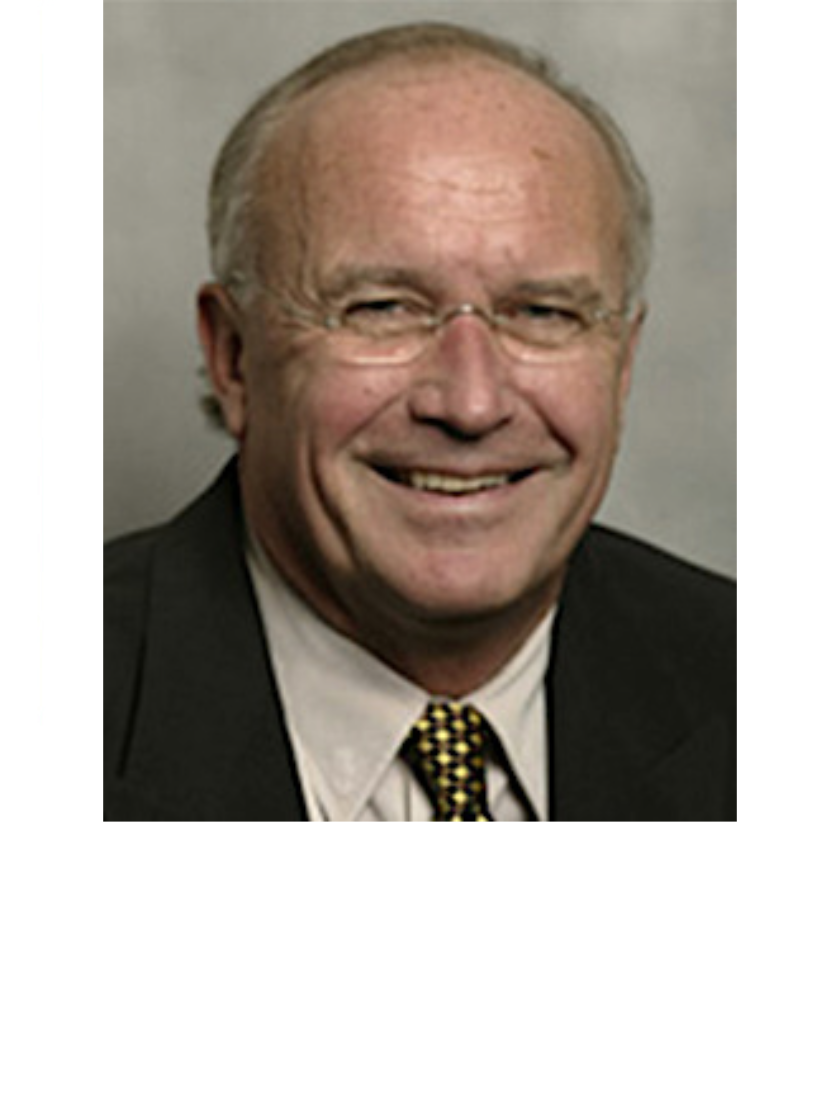
Bio
Leo T. Furcht is Allen-Pardee Professor and Head of the Department of Laboratory Medicine and Pathology at the University of Minnesota and a member of the Division of Molecular Pathology and Genomics. He served as Chairman of the Board of Directors for University of Minnesota Physicians, the Medical School practice plan with approximately 700 physicians, from 2004-2014. For a three-year period in the 90's he served as Vice Provost for Research of the University of Minnesota Health Sciences and established a research services organization to provide turnkey solutions for faculty and companies to facilitate clinical trials. Furcht served as the President of the Federation of American Societies for Experimental Biology (FASEB) a biomedical research advocacy organization with over 125,000 members and 23 constituent societies from 2006-2007. Prior to this he served as Vice President for Science Policy and led a FASEB program on conflict of interest in biomedical research. Furcht was also founding director of the Biomedical Engineering Center and led early efforts focused on biomedical MEMS, stem cells and molecular diagnostics. He was also founding director MD/ PhD program at the University of Minnesota and was principal investigator of the initial grant from the National Institutes of Health (NIH) Medical Scientist Training Program for the MD/PhD program. He played the lead role in establishing a highly regarded Center for Immunology at the University of Minnesota. Early in his career Furcht received a Research Career Development Award from the NIH and later a NCI Merit award.Furcht served on two American Association of Medical Colleges / American Association of Universities Task Forces working on issues surrounding academia industry interactions and issues regarding medical education and clinical research. He has testified in Congressional hearings on NIH budget re-authorization, before Institute of Medicine committees on scientific issues including embryonic stem cell research and a Presidential commission on the dual use of biological organisms. Furcht has published more than 175 scientific papers and holds more than 30 patents in the fields of polypeptides, biomaterials, and adult stem cells. He was profiled in the Medical School's Impact Medicine campaign under the title "Dr. Leo Furcht Creates a Legacy Many Aspire to Achieve."
Research Summary
Research Summary/Interests
- tumor cell behavior and metastasis
- extracellular matrix proteins and receptors
- stem cells
- biotechnology
Publications
- Hoffman, W. and Furcht, L. Divergence, convergence, and innovation: East-West bioscience in an anxious age.Asian Biotechnology and Development Review 16 (3): 3-23, 2014.
- Hoffman, W. and Furcht, L.T. The Biologist’s Imagination: Innovation in the Biosciences (New York: Oxford University Press, 2014).
- Furcht, L.T., and Hoffman, W. The Stem Cell Dilemma, second edition (New York: Arcade Publishing, 2011).
- DeLarco, J.E., Park, C.A., Dronava, H., Furcht, L.T. Cancer Biol. Ther. 9(5):362-70, 2010.
- Furcht, L.T., and Hoffman, W. Stem Cells. Minnesota Health Care News, 7(3), March 2009.
- Furcht, L.T., and Hoffman, W. The Stem Cell Dilemma (New York: Arcade Publishing, 2008).
- Furcht, L.T. and Wolinetz, C.D. What cures will we miss? The effects of reduced funding for biomedical research. Minnesota Physician, XXI (5), August 2007.
- Brockway LM. and Furcht, L.T. Financial disclosure policies of scientific publications. [Comment letter]. JAMA, 296(4): 2925-6: author reply 2926, 2006.
For a full list of Dr. Furcht's publications, Search PubMed.
Clinical Summary
Specialties
- Cell adhesion molecules and tumor metastasis
Education
Fellowships, Residencies, and Visiting Engagements
Honors and Recognition
Professional Memberships
Contact
Address
MMC 609 Mayo420 Delaware St SE
Minneapolis, MN 55455
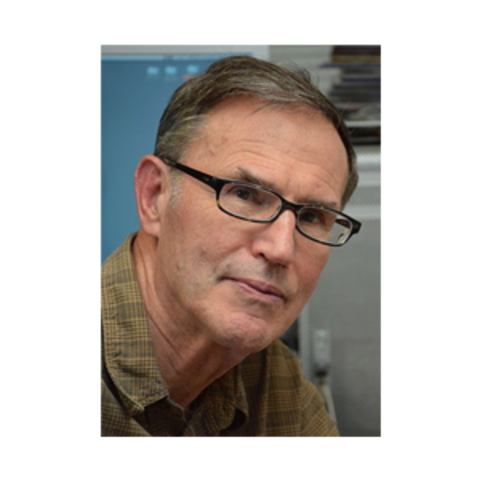
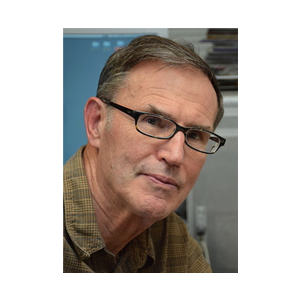
Bio
Dr. Haase is Regents’ Professor and Head, Department of Microbiology and Immunology, University of Minnesota. Dr. Haase has devoted his research career from the 1970s to the present to understanding the slow infections caused by lentiviruses from visna virus to SIV and HIV. The Haase lab pioneered approaches to visualizing animal lentivirus and HIV infections in vivo to reveal HIV lymphoid tissue reservoirs; covert infections enabling persistence despite immune defenses and ART; mechanisms of CD4 T cell depletion that limit immune reconstitution; and transmission mechanisms that lay foundations for developing effective microbicides and vaccines. His lab is currently exploring the role of productive and latent infections in resting CD4 T cells during ART with the aim of better Rx to move us closer to a functional cure for HIV infection. Dr. Haase is a NIH NINDS Javits Awardee and two-time recipient of an NIH MERIT Award for his work on HIV, an elected member of the National Academy of Medicine and American Academy of Microbiology, and a Fellow of the AAAS. He has served on the NIH Councils of NIAID and OAR, as the first Chair of the AIDS Research Advisory Council, and as Chair of the US Delegation for the U.S. Japan Cooperative Medical Sciences Program.
Research Summary
Viral pathogenesis, HIV My laboratory investigates the pathogenesis, treatment and prevention of lentiviral immunodeficiency infections caused by HIV-1 and its simian relative, SIV, using such technologies as in situ hybridization, in situ tetramer staining and quantitative image analysis to visualize infection and the hosts' cellular immune response in tissues. Much of our recent work has focused on sexual mucosal transmission and the acute stage of SIV infection, the roles of "resting" and activated CD4 T cells in establishing infection, and the mechanisms of the massive depletion of CD4 T cells in the gut. Going forward, these studies provide a foundation for studies of the correlates of protection for attenuated vaccines, and the development of vaccines and microbicides to prevent transmission. My laboratory has also undertaken a comprehensive microarray analysis of HIV-1 and SIV infections with the objectives of understanding pathogenesis and identifying novel targets for treatment and prevention. Current efforts focus on broadening the microarray analysis to encompass the early through late stages of HIV-1 infection, and mapping genes identified in the analysis to gain insight into their function in HIV-1 infected lymphatic tissues, the principal sites of virus production, persistence and pathology.
Recent Publications:
- Kroon E, Chottanapund S, Buranapraditkun S, Sacdalan C, Colby DJ, Chomchey N, Prueksakaew P, Pinyakorn S, Trichavaroj R, Vasan S, Manasnayakorn S, Reilly C, Helgeson E, Anderson J, David C, Zulk J, de Souza M, Tovanabutra S, Schuetz A, Robb ML, Douek DC, Phanuphak N, Haase A, Ananworanich J, Schacker TW. Paradoxically Greater Persistence of HIV RNA-Positive Cells in Lymphoid Tissue When ART Is Initiated in the Earliest Stage of Infection. J Infect Dis. 2022 Jun 15;225(12):2167-2175. doi: 10.1093/infdis/jiac089. PMID: 35275599; PMCID: PMC9200151.
- Wietgrefe SW, Duan L, Anderson J, Marqués G, Sanders M, Cummins NW, Badley AD, Dobrowolski C, Karn J, Pagliuzza A, Chomont N, Sannier G, Dubé M, Kaufmann DE, Zuck P, Wu G, Howell BJ, Reilly C, Herschhorn A, Schacker TW, Haase AT. Detecting Sources of Immune Activation and Viral Rebound in HIV Infection. J Virol. 2022 Aug 10;96(15):e0088522. doi: 10.1128/jvi.00885-22. Epub 2022 Jul 20. PMID: 35856674; PMCID: PMC9364797.
- Luca Schifanella, Jodi Anderson, Garritt Wieking, Peter J Southern, Spinello Antinori, Massimo Galli, Mario Corbellino, Alessia Lai, Nichole Klatt, Timothy W Schacker, Ashley T Haase, The Defenders of the Alveolus Succumb in COVID-19 Pneumonia to SARS-CoV-2 and Necroptosis, Pyroptosis, and PANoptosis, The Journal of Infectious Diseases, 2023;, jiad056, https://doi.org/10.1093/infdis/jiad056
- Wu G, Zuck P, Goh SL, Milush JM, Vohra P, Wong JK, Somsouk M, Yukl SA, Shacklett BL, Chomont N, Haase AT, Hatano H, Schacker TW, Deeks SG, Hazuda DJ, Hunt PW, Howell BJ. Gag p24 Is a Marker of Human Immunodeficiency Virus Expression in Tissues and Correlates With Immune Response. J Infect Dis. 2021 Nov 16;224(9):1593-1598. doi: 10.1093/infdis/jiab121. PMID: 33693750; PMCID: PMC8599810.
Contact
Address
2-115 MRF689 23rd Ave SE
Minneapolis, MN 55455
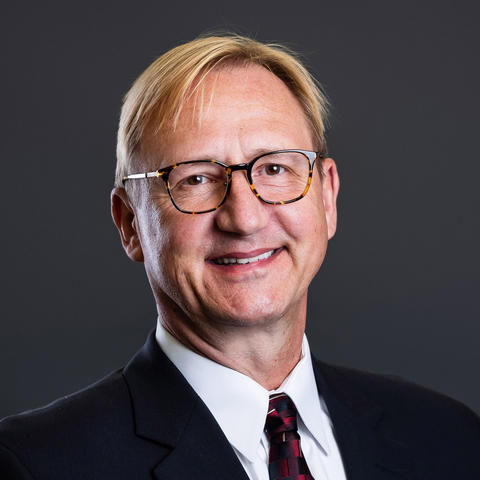
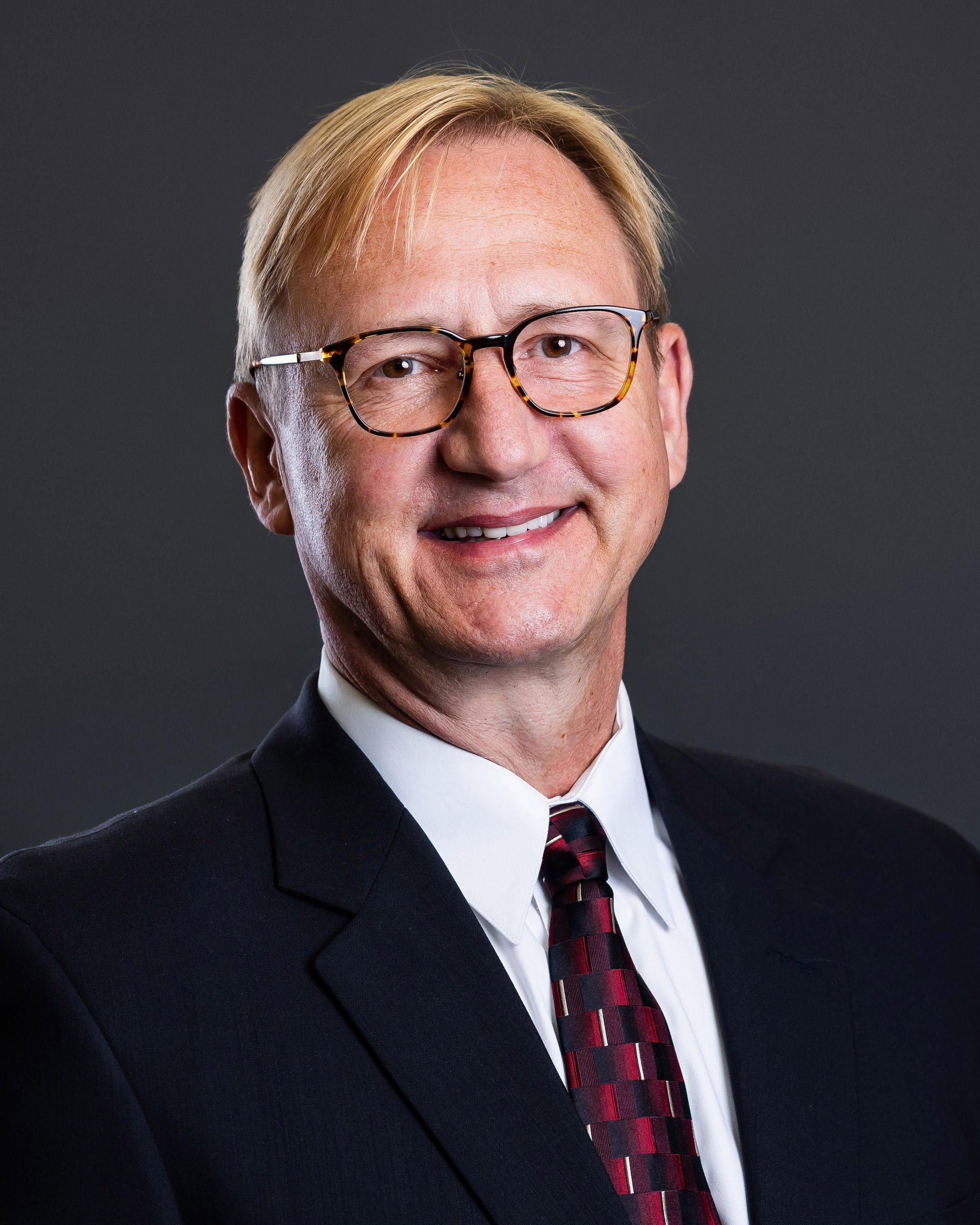
Bio
I am a systems neuroscientist with over 30 years of research, teaching, and mentoring experience. Born and raised near Cologne, Germany, I started my academic education in Biology at the University of Mainz, Germany. Later, I moved to the University of Tübingen in southern Germany to focus on Neuroscience, where I completed my masters and PhD thesis at the Max-Planck-Institute for Biological Cybernetics. After a brief year as a postdoctoral fellow at Washington University in St. Louis, USA, I first accepted a faculty position at the University of Freiburg, Germany, then moved to the University of Tennessee Health Science Center in Memphis, TN, USA, and finally accepted the position of Head of the Department for Biomedical Sciences in Duluth, MN.
Research Summary
Principal areas of research center on the structure and function of the cerebellar cortical network, cerebro-cerebellar interaction, dynamics of inter-areal neuronal communication, influence of breathing on brain activity and function in healthy and diseased brains.
No brain area operates in isolation. Short- and long-range connections form complex networks that enable brain areas to collaborate in a context-dependent manner, responding to internal and external cues to promote survival optimizing behavior. The neocortex and the cerebellum are two key players in this concert. They are reciprocally connected via massive fiber bundles and have both jointly and proportionately increased in size during vertebrate evolution. One focus of our research is to investigate the neuronal mechanisms of cerebro-cerebellar interaction to understand the involvement of the cerebellum in cognitive functions in healthy brains and the link between cerebellar neuropathology and cognitive disorders such as autism and schizophrenia.
Our second research focus is on the role of breathing in organizing brain activity through respiration-coupled neuronal rhythms. We were the first to report that breathing, via olfactory bulb activity, rhythmically modulates neuronal activity in the neocortex outside of the olfactory system. Our results also showed that the power of high-frequency (40-100Hz) gamma oscillations is modulated in phase with breathing. Gamma oscillations are strongly implicated with cognitive function, which led us to suggest that breathing may directly influence cognitive functions. Brain-breath coupling has since developed into a rapidly growing new research field. Our focus continues to be on the neuronal mechanisms underlying respiratory modulation of neuronal activity in different brain areas, implications of brain-breath coupling for cognitive functions, mental health, and the development of breath-based treatments.
Teaching Summary
- Curriculum development for graduate programs.
- Course director, lecturer, neuroscience graduate program courses.
- Course director, lecturer, and lab director for neuroanatomy courses for medical and dental students.
- Recipient of Outstanding Lecturer Award from students in the UTHSC College of Dentistry, as course director for Neuroanatomy.
- Nominee for the Student Government Association Executive Council (SGAEC) Excellence in Teaching Award.
- Mentor for three masters and seven PhD students and four postdoctoral fellows.
Education
Honors and Recognition
Professional Memberships
Grants and Patents
Selected Grants
Other Grants
Contact
Address
Department of Biomedical SciencesSMED223
1035 University Drive
Duluth, MN 55812
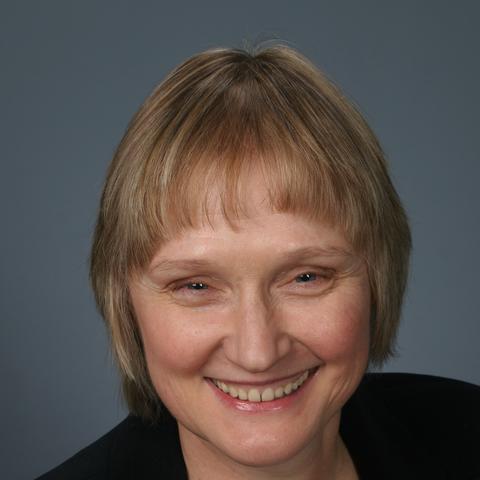
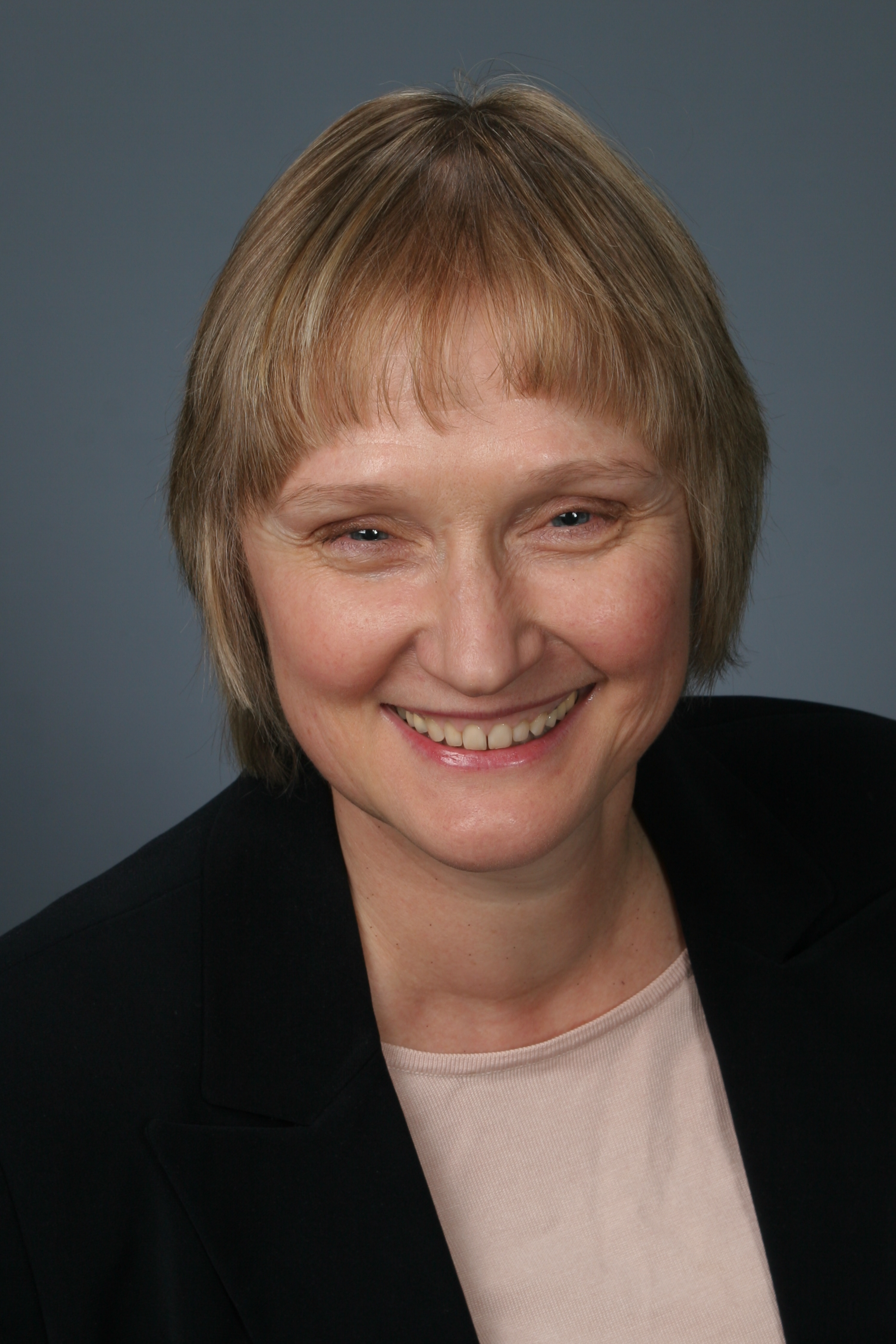
Bio
If you would like to schedule an appointment with Dr. Hordinsky, please call (612) 625-5656.
Maria K. Hordinsky, M.D. is Professor and Chair of the Department of Dermatology at the University of Minnesota and is also the Director of the Department’s Clinical Research Division. Dr. Hordinsky is recognized for her expertise and research in hair diseases and the peripheral nervous system as it relates to hair follicle biology. She is a member of the Board of Directors of the American Academy of Dermatology and the Scarring Alopecia Foundation. She is also an Immediate Past President of the American Hair Research Society (North, South, Central).
Dr. Hordinsky was a recipient of the Leonard Tow Humanism in Medicine Award and has over 200 publications. She regularly lectures and teaches on hair diseases and divides her time between seeing patients with residents and medical students in her clinical practice associated with University of Minnesota Physicians, doing clinical research, teaching, and administration.
Teaching Summary
Director, UMMC Dermatology clinical rotation for 3rd and 4th year medical students; Hair Disease Research; Mentor to the clinical research fellow at the UMMC site and medical students interested in Dermatology.
Clinical Summary
General dermatology; Hair diseases in children and adults; Genetic dermatology; Cutaneous T cell lymphoma; Neurodermatology; Skin cancer
Selected Presentations
Contact
Address
1-411 Phillips-Wangensteen Building516 Delaware St SE, MMC 98
Minneapolis, MN 55455
Administrative Contact
Admin Contact: Vicky Xiong - xion0793@umn.edu
Bio
Dr. Ikramuddin is the Jay Phillips Professor and Chairman of the Department of Surgery. He completed his medical degree at Albany Medical College, New York, followed by a residency in General Surgery at the State University of New York, Syracuse. Dr. Ikramuddin completed fellowships at Ohio State University in minimally invasive surgery and at the University of Pittsburgh in minimally invasive foregut surgery. He was on staff at the University of Pittsburgh Medical Center, and he was Chief of General Surgery at the VA Medical Center in Pittsburgh until his recruitment to the University of Minnesota in 2001. Dr. Ikramuddin previously held the Robert and Katherine Goodale Chair in Minimally Invasive Surgery. He has a research focus on the outcomes of type 2 diabetes following bariatric surgery and vagal nerve stimulation to produce weight loss. Academically, Dr. Ikramuddin has co-edited a textbook on laparoscopic bariatric surgery, and has authored or co-authored over 125 peer-reviewed publications. He has an interest in basic science research as it relates to the pathogenesis of type 2 diabetes.
Research Summary
The effects of pneumoperitoneum on immunology The pattern of common bile duct healing after surgery Telecommunication systems to enable teleconferencing between remote sites 3-D real-time video holography
Clinical Summary
Minimally invasive general surgery; Effects of gastric bypass on type 2 diabetes mellitus
Education
Fellowships, Residencies, and Visiting Engagements
Honors and Recognition
Media Appearances
Grants and Patents
Patents
Contact
Address
MMC 195420 Delaware St. SE
Minneapolis, MN, 55455
Administrative Contact
Executive Assistant: Rachel Fitts | deckl007@umn.edu
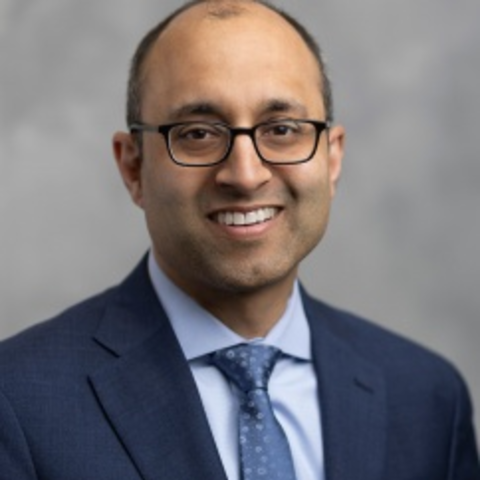
Bio
I am committed to treating my patients with a combination of well-established therapies and new technology to optimize cure of the disease and quality of life. My goal is to establish a foundation of trust and understanding such that my patients fully understand the nature of their disease, the treatment options available, and expected outcomes.
Expertise
Head and Neck Oncologic Surgery and Microvascular Reconstruction
Education
Undergrad: University of Michigan
Medical school: University of Pennsylvania School of Medicine
Residency: Cleveland Clinic Foundation
Fellowship: University of Michigan
Board Certifications
American Board of Otolaryngology
Awards and Recognitions
- "Top Doctor," Minnesota Monthly
- “Top Doctor” Mpls-St Paul Magazine
Professional Associations
- American Head and Neck Society
- Triological Society
- American Academy of Otolaryngology-Head and Neck Surgery
- American College of Surgeons
Research Summary
I spend my clinical time treating patients with benign and malignant disease of the head neck. Given that this disease is strongly associated with tobacco use, I have become interested in the tobacco-related carcinogenesis and the risk of oral cancer. Specifically, I am driven to produce new and clinically applicable knowledge about the carcinogenic events that lead to oral carcinoma. Many of our patients have a history of smoking, but the factors that cause some smokers to develop carcinoma while others do not are poorly studied. This gap in knowledge led me to study tobacco related carcinogenesis in oral/head and neck cancer. We seek to better understand the specific carcinogens most important in the genesis of oral cancer. This research is expected to not only significantly increase understanding of tobacco-related carcinogenesis, but also aid in risk assessment for oral cancer as well as tobacco regulation efforts.
Publications
- Khariwala SS. Moving forward after gaining hard-won experience through the Covid-19 pandemic. JAMA Otolaryngol Head Neck Surg. 2022 doi: 10.1001/jamaoto.2022.273
- Van Heest T, Rubin N, Khariwala SS. Persistent tobacco use following treatment for head and neck cancer. JAMA Otolaryngol Head Neck Surg. 2022 JAMA Otolaryngol Head Neck Surg. 2022;148(7):597-603. doi: 10.1001/ jamaoto.2022.0810.
- Osazuwa-Peters N, Graboyes E, Khariwala SS. Expanding indications for the human papillomavirus vaccine: One small step for the prevention of head and neck cancer but one giant leap remains. JAMA Otolaryngol Head Neck Surg. 2020 doi:10.1001/jamaoto.2020.4068
- https://pubmed.ncbi.nlm.nih.gov/?sort=date&term=Khariwala+SS&cauthor_id=36074474
Contact
Address
Philips Wangensteen Building420 Delaware St MMC-396
Minneapolis, MN 55455
Administrative Contact
Nicole Rueger
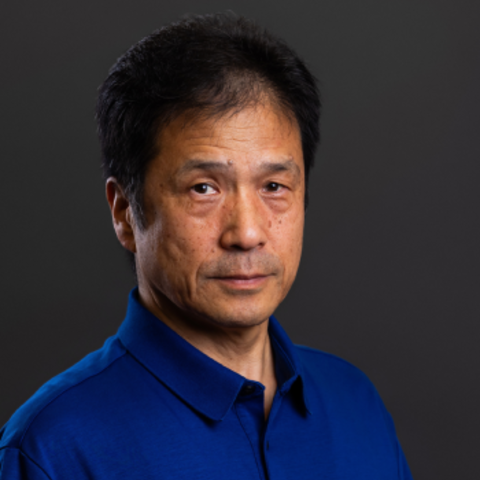
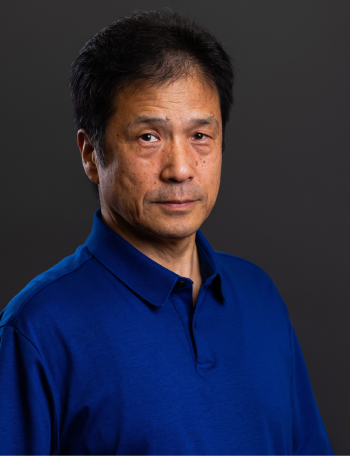
Research Summary
I have a long-standing interest in the functional recovery of sensory and motor functions after brain injury, such as stroke. I have been exploring technologies that can improve the functional recovery in stroke patients. Specifically, how is the somatosensory input processed in the primary somatosensory, primary motor, and premotor areas when the input is actively used in guiding behavioral tasks?
Recently, we found that the timing of hippocampal sharp-wave ripple events is modulated by the respiratory cycle. These findings represent a possible neuronal mechanism for a direct influence of the respiratory cycle on memory function. We also found that cerebellum modulates the intrinsic rhythmicity of eupneic breathing in a way that would be consistent with a cerebellar role in coordinating the respiratory rhythm with other orofacial movements, such as swallowing. Another line of my research also points to a possible role of the cerebellum as a coordinator of rhythms. We recently published causal evidence for a cerebellar role in controlling the coherence of neural oscillations between prefrontal cortex and hippocampal CA1 region during the decision-making process in a spatial working memory task. In ongoing research, we continue to investigate neuronal mechanisms of cerebro-cerebellar interaction, focusing on the modulation of functional connectivity between forebrain areas.
Education
Fellowships, Residencies, and Visiting Engagements
Professional Memberships
Contact
Address
Department of Biomedical SciencesSMED239
1035 University Drive
Duluth, MN 55812
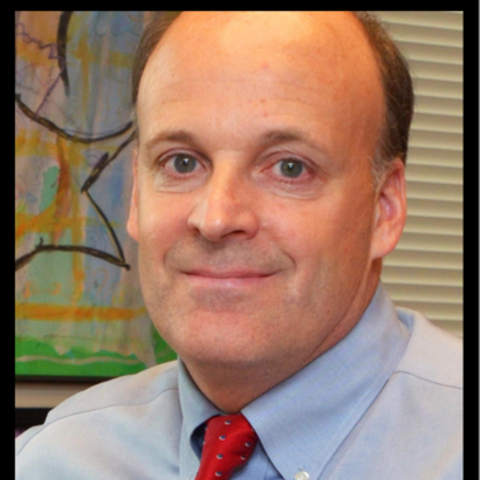

Bio
Joseph M. Metzger, Ph.D., is the Maurice Visscher Land-Grant Chair of Physiology and Professor and Head of Integrative Biology and Physiology at the University of Minnesota Medical School. The Metzger laboratory uses molecular and integrative biomedical approaches for mechanistic investigations of heart and skeletal muscle function, with the long-range goal of translating these findings to new therapies and treatments for acquired and inherited heart and muscle diseases.
Metzger Lab Mission Statement: We seek mechanistic insights into normal and diseased cardiac and skeletal muscle function. Our overarching goal is to translate basic science discoveries into potential therapeutic strategies to combat inherited and acquired forms of heart and muscle diseases. Lab projects embrace individuality, emphasize cooperation and collaboration, and encompass a standard of excellence to all that we do as individual researchers and as a laboratory. Our guiding principles are to treat others with respect and courtesy, to maintain the lab in a collegial, safe and professional environment, and to work each day to the fullest of our capabilities.
Metzger received a Bachelor's degree in Natural Science from Saint John's University, Collegeville, Minnesota (1980), a Master's degree in Biology and Exercise Physiology from Ball State University, Muncie, Indiana (1982), a Ph.D. degree in Biology/Physiology under the mentorship of Dr. Robert Fitts from Marquette University Milwaukee, Wisconsin (1985), and performed post doctoral studies with Dr. Richard Moss at the University of Wisconsin, Madison, Wisconsin (1991). His lab designed and implemented a cardiac muscle-cell system that allows the transfer of genes into heart cells in order to assess the impact of those genes on the production of force and motion, the major function of cardiac muscle cells. The approach has the advantage of shedding light on the primary role of a normal or mutated gene in an otherwise normal muscle cell.
Metzger's findings have been published in top peer journals including Nature, Science, Nature Medicine, the Journal of Clinical Investigation, and the Proceedings of the National Academy of Sciences. This research is funded by the National Institutes of Health (NIH), the American Heart Association, the Muscular Dystrophy Association, and the Federation to Eradicate Duchenne, and has opened the path to treatment for a variety of heart and muscle diseases.
Research Summary
We are a mechanistically driven biomedical research lab focused on the form and function of heart and skeletal muscle in health and disease. We use molecular and integrative biomedical approaches for mechanistic investigations of heart and skeletal muscle function, with the long-range goal of translating these findings to new therapies and treatments for acquired and inherited heart and muscle diseases.Integrative systems biology of cardiac and skeletal muscle function Gene therapy, Gene and Base Editing Synthetic chemistries as membrane stabilizers Transgenic models of heart and muscle diseases Molecular mechanisms of sarcomere function Human iPS cell cardiac and skeletal muscle
Education
Contact
Address
6-125 Jackson HallMinneapolis, MN 55455
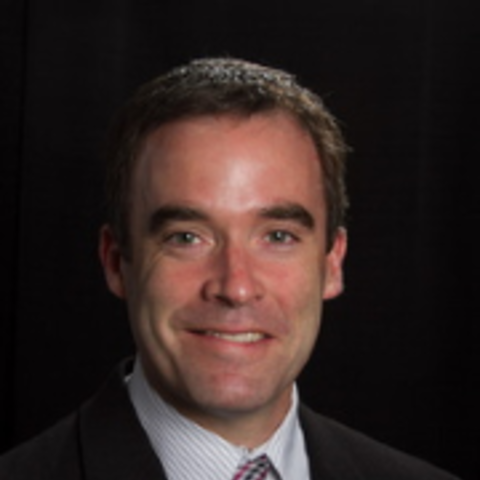
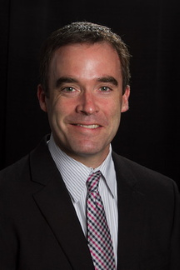
Bio
Dr. Miner is a Professor of Emergency Medicine at the University of Minnesota Medical School. He is board certified in Emergency Medicine and is the Senior Associate Editor for Electronic Publications of Academic Emergency Medicine. Dr. Miner conducts research in the areas of pain management, procedural sedation, altered mental status, shock, and monitoring during critical care in the Emergency Department and has numerous publications on these topics. He has edited a textbook on pain management and sedation (Emergency Pain and Sedation, Cambridge University Press, 2008) and has authored chapters about pain management, sedation, and monitoring in several other textbooks. He also conducts research in the effects of poverty on patients seen in the Emergency Department.
Education
Fellowships, Residencies, and Visiting Engagements
Licensures and Certifications
Honors and Recognition
Selected Publications
Selected Presentations
Contact
Administrative Contact
Haley Rothman
hdauff@umn.edu
Department of Emergency Medicine
717 Delaware St SE, #508A
Minneapolis, MN 55414
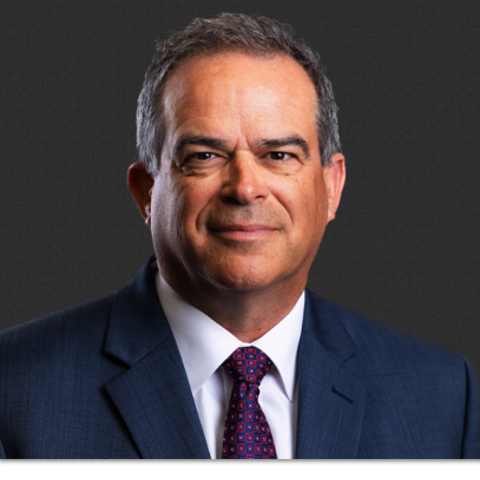
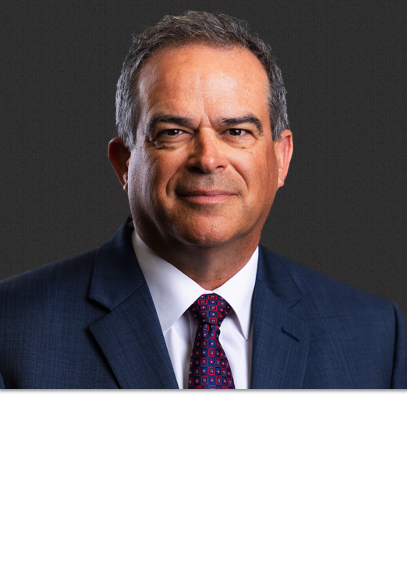
Bio
Dr. Nalin’s leadership roles for the University of Minnesota Medical School are the following: Professor with tenure and Department Head (Chair) of Family Medicine and Biobehavioral Health, and Associate Dean for Rural Medicine. From 2001-2019 at Indiana University School of Medicine, Dr. Nalin served in several executive, academic, and hospital leadership roles. Initially recruited to Indiana as residency program director, Dr. Nalin advanced to Associate Dean for Graduate Medical Education, during which IUSM earned full accreditation with commendation from the ACGME. Then, as Executive Associate Dean for Educational Affairs with a responsibility portfolio budgeted at $80 Million dollars, Dr. Nalin led IU School of Medicine’s reaccreditation as its faculty accreditation leader while also leading the expansion of its system of eight regional medical campuses from two-year to four-year campuses, increasing IUSM’s medical school enrollment by 30% from 1,120 to 1,456 medical students. Dr. Nalin has fulfilled a diverse array of leadership roles, including VP of Medical Affairs and Interim CEO of the Riggs Community Health Center (FQHC), leading a multidisciplinary medical staff including FM, IM, Peds, Ob-Gyn, and Dentistry. Dr. Nalin also served as Interim Chair of the Radiation Oncology department at IUSM.
Dr. Nalin has earned the following educational degrees: a Bachelor of Arts from Cornell University, a Doctor of Medicine from the Larner College of Medicine of the University of Vermont, and an MBA from the Indiana University Kelley School of Business. Among Dr. Nalin’s awards and recognitions are a Top Doctor award and an Indiana Academy of Family Physicians award. With colleagues on the MBA Class gift committee, Dr. Nalin shared in the Spirit of Philanthropy Award from IUPUI for his MBA program’s record-breaking Class Gift. Dr. Nalin served as a governor-appointed member of the Indiana Medical Education Board, supporting family medicine residency programs and the Indiana Graduate Medical Education Board for the expansion of residency programs.
Nationally, Dr. Nalin has served as the elected President of the Association of Family Medicine Residency Directors and co-leader of the AAMC GRA GME Leadership Course for GME-designated institutional officials and executive directors. At present, Dr. Nalin serves on the Steering Committee of the AAMC Group on Regional Medical Campuses and has been appointed to a three-year term on the AAMC Student Surveys Advisory Committee. Dr. Nalin’s clinical care and leadership experiences span rural, urban, and suburban practices and institutions. Dr. Nalin is board-certified in family medicine and completed residency at the Lancaster General Hospital in Pennsylvania. From the American Association of Physician Leadership, Dr. Nalin earned the certification as a Certified Physician Executive CPE. As a faculty physician executive, Dr. Nalin has enjoyed contributing to the vision and design of medical and educational facilities. Dr. Nalin enjoys teamwork and mentoring in education, research, clinical care, stewardship, and the business of medicine., and serves as a faculty advisor to medical student interest groups. Dr. Nalin enjoys music, sports, arts, the outdoors, and sailing.
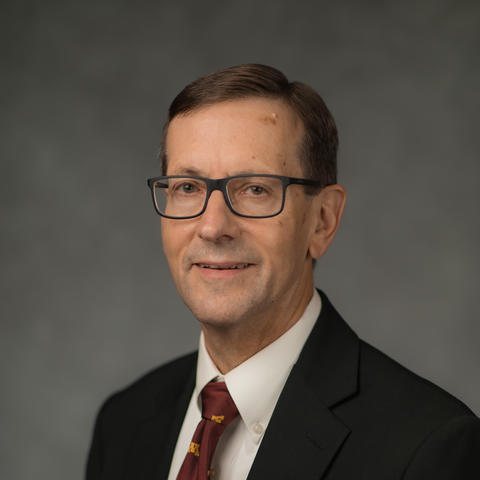
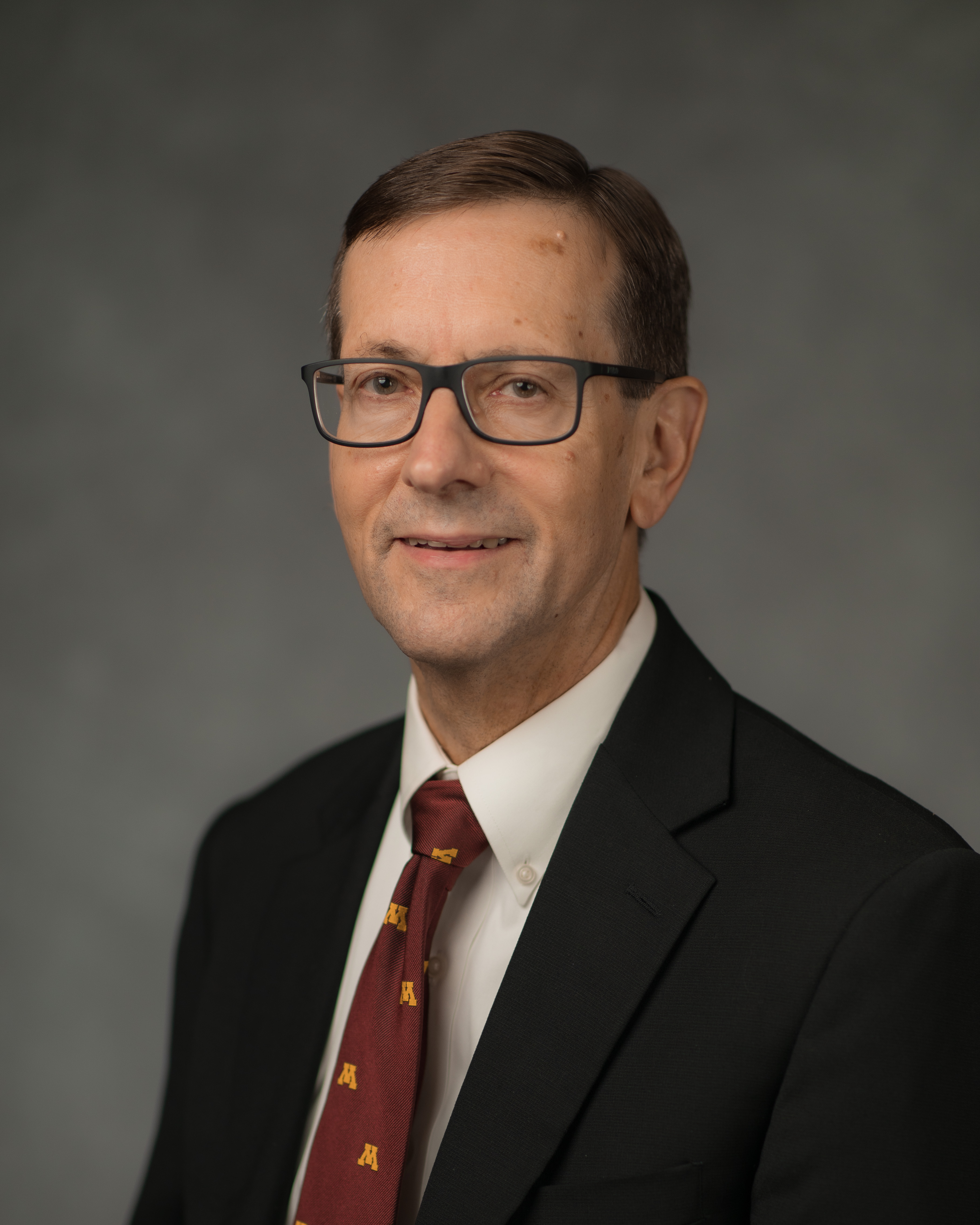
Bio
Dr. Joseph Neglia is the Head of the Department of Pediatrics at the University of Minnesota Medical School and the Physician-in-Chief of the M Health Fairview Masonic Children's Hospital. He holds the Ruben-Bentson Chair and a joint appointment as Professor in the Department of Pediatrics and in the Division of Epidemiology and Community Health in the School of Public Health.
Dr. Neglia's area of research involves the long-term effects of cancer therapy in cancer survivors and the occurrence of second malignancies following childhood cancer. He is nationally and internationally recognized for his contributions to the field of childhood cancer long-term effects. He currently is Principal Investigator at the Masonic Cancer Center, University of Minnesota for the Children's Oncology Group (COG), and the vice-chair of the Voting Body of the COG. Dr. Neglia is also Principal Investigator of an American Cancer Society Grant investigating neuro-behavioral outcomes of children recently treated for leukemia.
Dr. Neglia has been involved in numerous service activities both within and outside of the University of Minnesota. He is an active member of Children's Oncology Group, American Society of Pediatric Hematology/Oncology, and Masonic Cancer Center at the University of Minnesota. He regularly reviews manuscripts for numerous journals including the New England Journal of Medicine, the Journal of the National Cancer Institute, and Cancer among others. At the University level, he has been elected as an alternate member of the University Senate and developed and directed the original Cancer Center Database.
Education
Fellowships, Residencies, and Visiting Engagements
Licensures and Certifications
Honors and Recognition
Contact
Address
Pediatric Department Head OfficeAcademic Office Building
2450 Riverside Ave S AO-121
Minneapolis, MN 55454
Administrative Contact
Administrative Phone: 612-624-3113
Administrative Email: pedchair@umn.edu
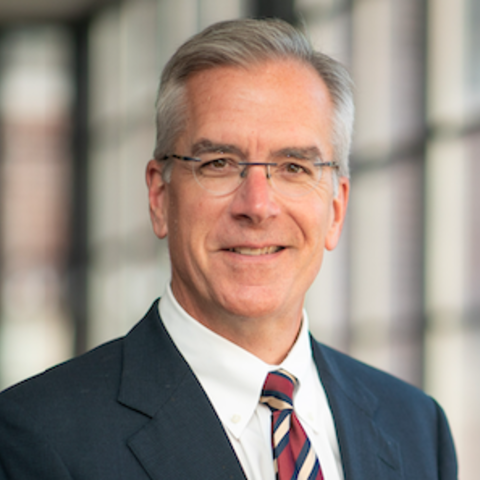
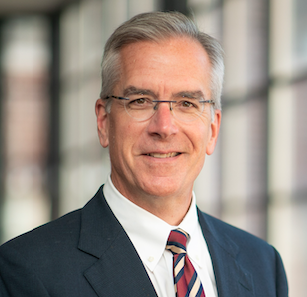
Bio
James Pacala, MD, MS, is professor and head of the University of Minnesota Department of Family Medicine and Community Health. Dr. Pacala has performed research and published extensively on models of care delivery to geriatric populations and innovative teaching methods. He is a past president of the American Geriatrics Society (AGS) and is co-author of the AGS practice handbook, Geriatrics At Your Fingertips. In 2013, he was appointed to the 2013-14 Health and Aging Policy Fellowship. He is also PI for the Minnesota Northstar Geriatrics Workforce Enhancement Program.
Clinical Summary
Geriatrics, medical student education, and health services research.
Contact
Address
PWB 6-240420 Delaware St. SE, MMC 381
Minneapolis, MN 55455
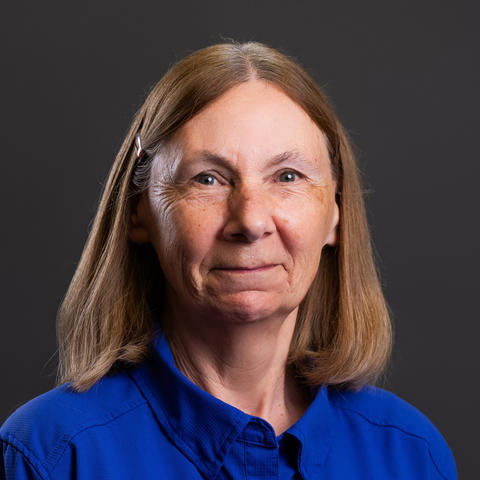
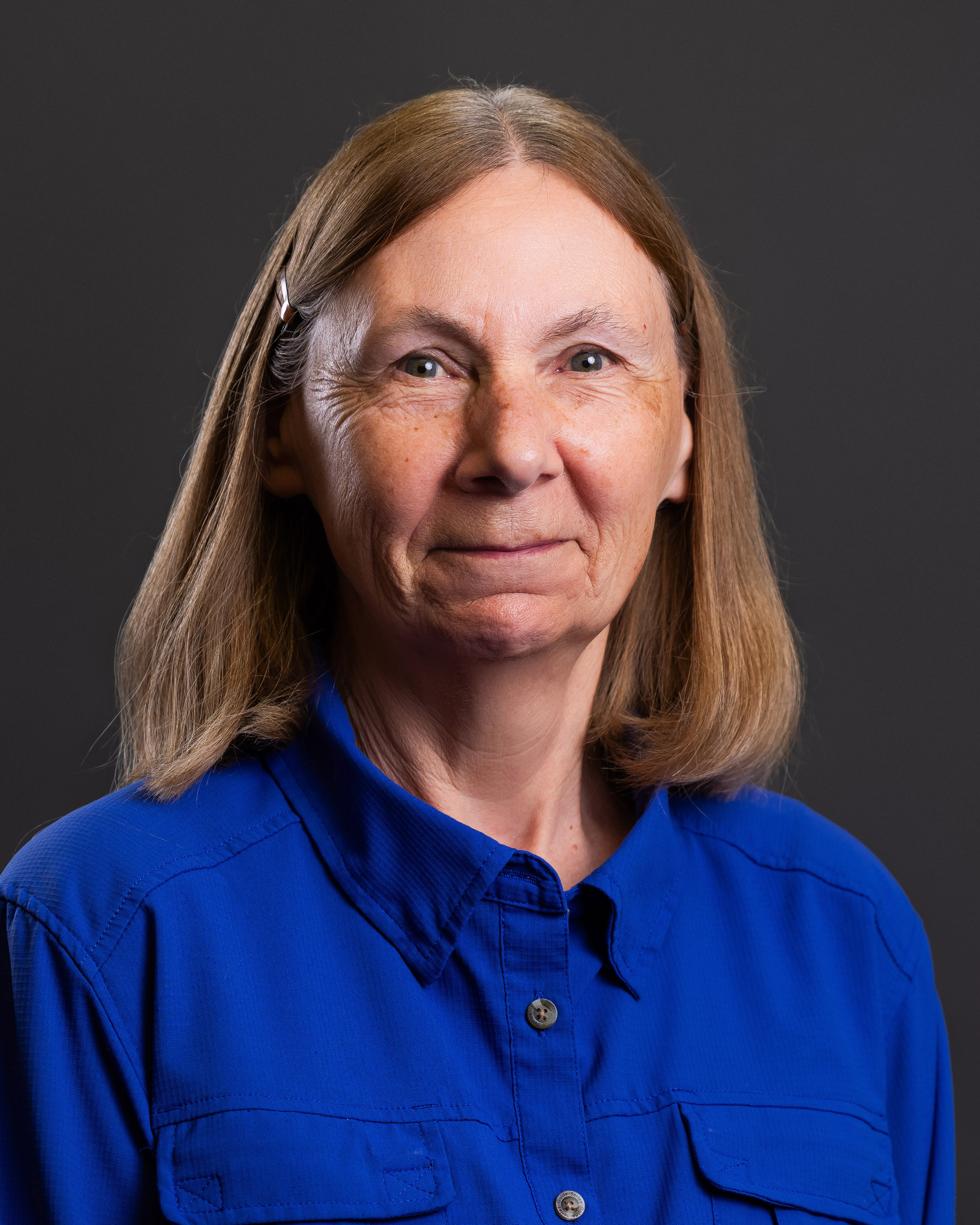
Bio
Dr. Regal was named the Co-Interim Regional Campus Dean of the University of Minnesota Medical School, Duluth Campus. She became active in this role on April 19, 2021 through Summer 2022.
Research Summary
The overall goals of my research program involve understanding basic immune mechanisms of cardiopulmonary disease. I have a long-standing interest in the complement system as a mediator of adverse events in disease states such as anaphylaxis, asthma and most currently pregnancy-induced hypertension. These interests have also involved defining mechanisms of pulmonary immunotoxicity of small molecule workplace allergens such as trimellitic anhydride. My research approach involves experimentation at the molecular, biochemical and physiological levels using animal models of disease. Current research projects include:
Pregnancy-induced Hypertension Preeclampsia and related hypertensive disorders of pregnancy affect ~10% of all pregnancies in the United States, significantly impacting the health of both mother and child. The initiating event of preeclampsia involves impaired blood flow to the placenta and the end result for the mother is high blood pressure and protein in the urine, along with growth restriction in the fetus. During pregnancy, the immune system including the plasma complement system, is tightly regulated to allow fetal survival. In women with preeclampsia the complement system is excessively activated, and our long-term goal is to determine the therapeutic utility of manipulating the complement system to prevent preeclampsia or minimize consequences for the mother and child. We hypothesized that complement system activation and white blood cell recruitment lead to hypertension in the mother and growth restriction in the fetus. Thus, we are manipulating the complement system and white blood cell function in a model of placental ischemia induced high blood pressure to determine the critical mechanisms responsible for the pregnancy complications. Our most recent studies are defining the role of natural antibody and the B lymphocyte in initiating complement activation in vivo, and assessing the importance of endogenous complement regulators in limiting the activation.
Dr. Regal's lab is currently funded through the National Heart Lung and Blood Institute of NIH and the American heart Association.
Professional Associations
- Director, AHC Women's Mentoring Program
- Director, AHC Duluth Research Seminar Series
- Editorial Board, Hypertension
- Editorial Board, Toxicological Sciences
- Associate Editor, Journal of Immunotoxicology
- Fellow, Academy of Toxicological Sciences
Teaching Summary
Chemotherapy of Infection; Anti-inflammatory Drugs; Drugs for Pulmonary Disorders
Mentoring/Advising: undergraduates, graduate & post-doctoral fellows
Education
Fellowships, Residencies, and Visiting Engagements
Honors and Recognition
Professional Memberships
Selected Presentations
Grants and Patents
Patents
Contact
Address
Department of Biomedical Sciences313 SMed
1035 University Drive
Duluth, MN 55812
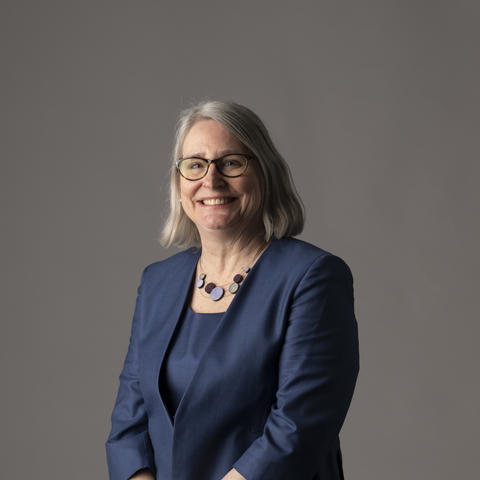
Bio
Dr. Elizabeth Seaquist is the Nesbitt Chair and Head of the Department of Medicine. Awards recognizing her research and mentoring include the American Diabetes Association’s Transformative Woman in Diabetes Award in 2019 and the Albert Renold Award for Mentoring in 2020. She served as the President for Medicine and Science of the American Diabetes Association in 2014. As a clinical investigator, Dr. Seaquist is interested in hypoglycemia and the complications of diabetes. Her research focuses on the effect of diabetes on brain metabolism, structure, and function. She was the site investigator for the Action to Control Cardiovascular Risk in Diabetes (ACCORD) trial, the Glycemia Reduction Approaches in Diabetes: A Comparative Effectiveness Study (GRADE) study, and the Researching Cardiovascular Events with a Weekly Incretin in Diabetes (REWIND) study. She has an active clinical practice and is board certified in Internal Medicine and Endocrinology, Diabetes, and Metabolism.
Research Summary
- Impact of diabetes on cerebral structure and function
- Hypoglycemia in diabetes
Clinical Trials
- Cerebral Responses to Insulin-Induced Hypoglycemia
- Effect of Recurrent Hypoglycemia
Clinical Summary
- Management of type 1 and type 2 diabetes
- Complications of diabetes
- Hypoglycemia in diabetes
Education
Fellowships, Residencies, and Visiting Engagements
Honors and Recognition
Professional Memberships
Contact
Administrative Contact
Name: Denise Jackson
Phone: 612-625-3654
Email: jacksond@umn.edu
Fax: 612-626-3107
Mail: 420 Delaware Street SE, MMC 194, Minneapolis, MN 55455
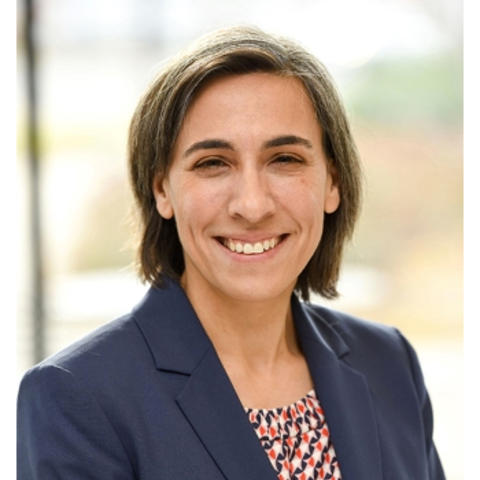
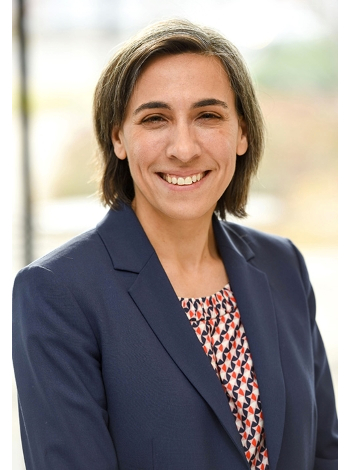
Bio
Dr. Terezakis focuses her clinical practice on pediatric cancers, hematologic malignancies including lymphoma, as well as musculoskeletal tumors. Her clinical and translational research incorporates advanced diagnostic radiology techniques into the radiation treatment planning of cancers to minimize long-term side effects and improve efficacy of treatment. She is also an active investigator of stereotactic body radiation therapy techniques in pediatric and adult tumors. Dr. Terezakis is a leader within the Children's Oncology Group (COG) that develops and runs national clinical trials for children with cancer as well as multiple national committees that establish the standard of care for cancer treatment.
Clinical Summary
Pediatric cancers; Hematologic malignancies; Bone and soft tissue sarcomas; Stereotactic body radiotherapy
Education
Fellowships, Residencies, and Visiting Engagements
Languages
Contact
Address
Phillips-Wangensteen Building, Floor 1, Room 1-256516 Delaware St SE
Minneapolis, MN, 55455
Administrative Contact
Theresa Nace
tnace@umn.edu
612-626-2631
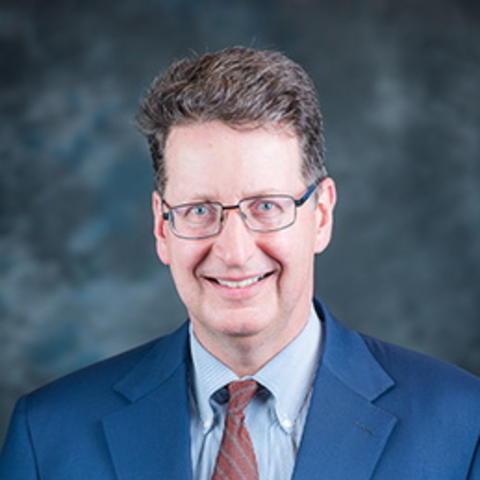
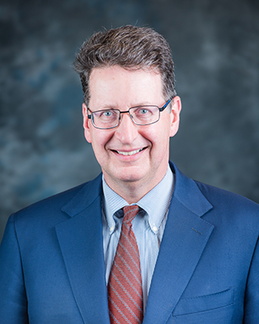
Bio
Dr. van Kuijk is particularly interested in treating patients with Age-Related Macular Degeneration (AMD), he has a long track record of research into pathogenesis of AMD. In addition, he sees patients with diabetic retinopathy and inherited retinal degenerations.
Research Summary
Dr. van Kuijk's clinical and research interests are laser tissue interaction, the molecular basis of and the role of genetics on efficiency of nutritional intervention in Age-Related Macular Degeneration (AMD), and the use of investigational drugs in AMD and diabetic retinopathy.
Clinical Summary
Dr. van Kuijk is particularly interested in treating patients with Age-Related Macular Degeneration (AMD), he has a long track record of research into pathogenesis of AMD. In addition, he sees patients with diabetic retinopathy and inherited retinal degenerations.
Contact
Address
Phillips Wangensteen Building420 Delaware Street., MMC 493
Minneapolis, MN 55455


Bio
I am the Donald W. Hastings Endowed Chair in Psychiatry and Department Head of Psychiatry & Behavioral Sciences at the University of Minnesota (UMN) Medical School. Before joining UMN, I served as Vice Chair of the Department of Psychiatry at the University of California, San Francisco, and as Associate Chief of Staff for Mental Health at the San Francisco Veterans Affairs (VA) Medical Centre.
I earned my MD at the Wayne State University School of Medicine in Detroit, Michigan. I further trained at the Palo Alto VA Medical Center and Stanford University, where I served as Chief Resident, followed by a fellowship in Psychiatric Neurosciences Research.
I direct a translational clinical neuroscience laboratory that focuses on cognitive dysfunction in psychosis. My lab studies neuroscience-informed cognitive training methods focusing on young adults in early psychosis with the goal of ameliorating cognition and focusing on functional outcomes. I lead a hub of the national EPINET (Early Psychosis Intervention Network) initiative, overseeing measurement-based specialty care in Minnesota and Iowa. I am also a co-PI on an NIMH Conte Center using computed psychiatry methods to study state representation dysfunction in psychosis.
I serve as Deputy Editor of the Schizophrenia Research Journal and am a fellow of the American College of Neuropharmacology. I lead the Clinical Neuroscience curriculum for the residency program. I have participated in the White House conference on “Video Games to Enhance Attention and Well-Being” and was a recipient of the National Alliance on Mental Illness (NAMI) National Research Award.
In the Media
- 2023: Helped write this Star Tribune op-ed titled, "Health will suffer with predicted hospital cuts…They may not bring in big money, but we can't afford to lose pediatrics, obstetrics and mental health services"
- 2023: Featured in this MinnPost article titled, “Living beyond diagnoses, Uma Oswald aims for a life ‘in recovery’ from mental illness.”
- 2022: Featured in a video titled, "Tackling Psychiatric Illness Using Translational Models and Computations", shot as part of the American Psychiatric Association's Conference TV with funding from NeuroPRSMH (NeuroPlasticity Research in Support of Mental Health), the U’s multidisciplinary neuroscience research group
- 2022: Featured for their work on NeuroPRSMH in an issue of UMN’s The Scope
- 2022: Featured in this UMN Medical School article titled, “Collaborating to a Successful Grant,” about the process used to secure their P50 Conte Center Grant.
- 2021: Quoted in a Minneapolis Star Tribune story titled, Minnesota's long haul: One year of COVID-19.
- 2021: Quoted in an editorial in the Star Tribune titled, “Doctor's 'long climb out' after bout with COVID-19”.
Education
Fellowships, Residencies, and Visiting Engagements
Licensures and Certifications
Honors and Recognition
Professional Memberships
Selected Publications
Selected Presentations
Contact
Address
Department of Psychiatry & Behavioral Sciences, F282/2A West Building, 2450 Riverside Avenue South, Minneapolis, MN 55454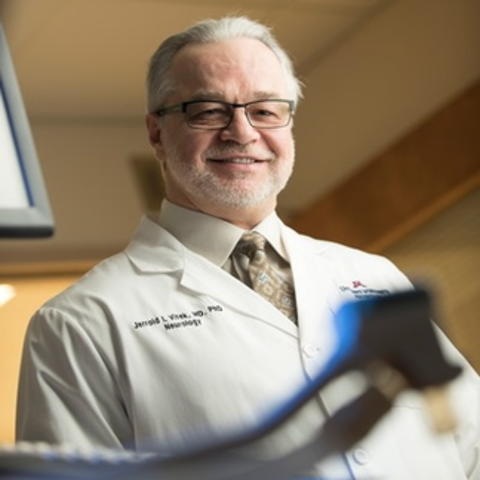
Bio
Dr. Jerry Vitek is the Head of the Neurology Department, Director of the Neuromodulation Research Program, and Center Director of the University of Minnesota Udall Center of Excellence for Parkinson's Research. He previously served as the Neuromodulation Research Center Director at the Lerner Research Institute of the Cleveland Clinic Foundation developing functional surgery and deep brain stimulation (DBS) techniques for the treatment of neurological disease. Dr. Vitek has also held faculty positions at Emory University and The Johns Hopkins University, where he assisted in the development of the functional neurosurgery programs and conducted research on the pathophysiology of movement disorders and mechanism(s) underlying the beneficial effects of DBS.He is currently the PI on several NIH-, foundation- and industry-funded grants, which include both non-human primate and human clinical studies on the neurophysiology of movement disorders and neuromodulation mechanisms. Dr. Vitek is also the PI for an industry-sponsored multicenter phase III pivotal clinical trial to investigate the safety and efficacy of a new neuromodulation device for the purposes of an FDA PMA submission. Many of his research projects involve close collaboration with other neurologists, neuroscientists, neurosurgeons, radiologists, and/or biomedical engineers. Much of this work has provided new insight into the neurophysiology of movement disorders and the therapeutic mechanisms of DBS and contributed to improvements in DBS surgery and treatment as well as the application of DBS to other neurological disorders.
Research Summary
Dr. Vitek directs a large interdisciplinary neuromodulation research program primarily centered on understanding the pathophysiology of movement disorders such as Parkinson's disease and dystonia as well as the mechanisms underlying the therapeutic effect of deep brain stimulation. Dr. Vitek serves as the principal investigator for both pre-clinical laboratory studies using animal models and clinical studies on human subjects/patients. Much of his work focuses on the ultimate translation of basic laboratory research discoveries into clinical treatment options for affected patients in order to reduce symptoms, minimize side effects and enhance function and quality of life. Dr. Vitek forms key collaborations with other experts in neurology as well as other disciplines such as neurosurgery, neuroscience, biomedical science, and radiology in addition to the medical industry to expedite and enhance new discoveries and their meaningful translation from "bench to bedside".
Clinical Summary
Parkinson's Disease; Dystonia; Tremor; Movement Disorders; DaTscan Imaging; Deep Brain Stimulation
Honors and Recognition
Selected Presentations
Contact
Address
12-110 Phillips-Wangensteen Building516 Delaware St SE
Minneapolis, MN 55455
Administrative Contact
Clinic
Neurology Central Line: 612-626-6688
Interim Academic Administrative Assistant
Heather Nelson
nelso476@umn.edu
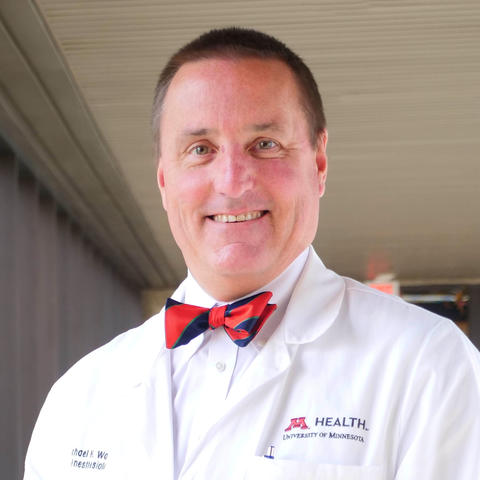
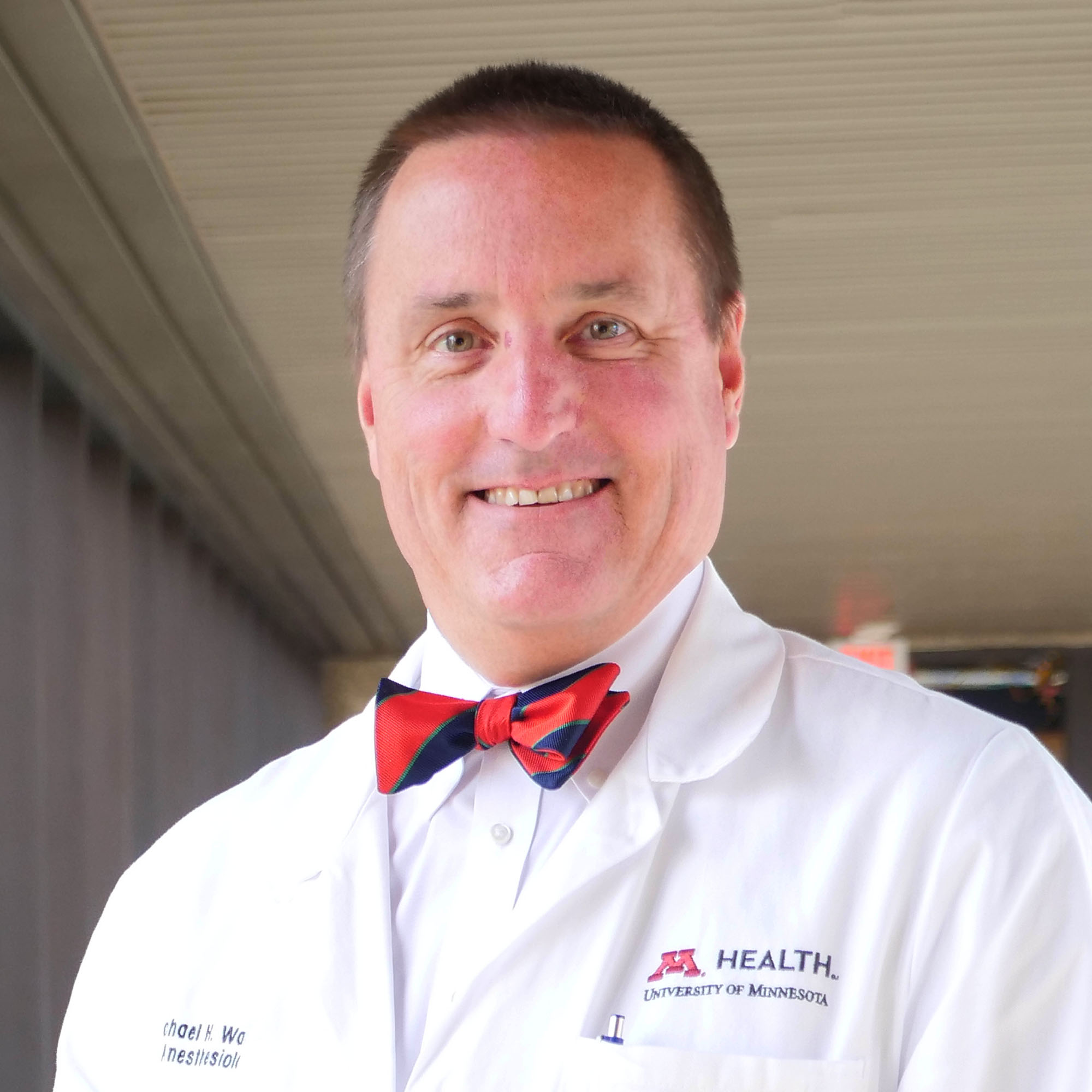
Bio
Michael Wall, MD, FASA, FCCM, is the JJ Buckley Professor and Chair of the Department of Anesthesiology at the University of Minnesota Medical School. He also serves as Senior Vice President and physician leader for the M Health Fairview University of Minnesota Medical Center.
Dr. Wall received his medical degree from Dartmouth. He completed residency at the University of Washington in general surgery and anesthesiology, in which he served as chief resident. He has also completed fellowships in cardiothoracic anesthesiology and critical care medicine. In addition to his university appointments, Dr. Wall also serves on the board of directors for the Metro Minnesota Council on Graduate Medical Education, the Minnesota Society of Anesthesiologists, and the Society of Critical Care Anesthesiologists.
Education
Honors and Recognition
Professional Memberships
Selected Publications
Selected Presentations
Contact
Address
B515 Mayo Memorial Building,420 Delaware Street SE,
Minneapolis, MN 55455
Administrative Contact
Anita Stiles
Executive Assistant
astiles@umn.edu
612-624-8522
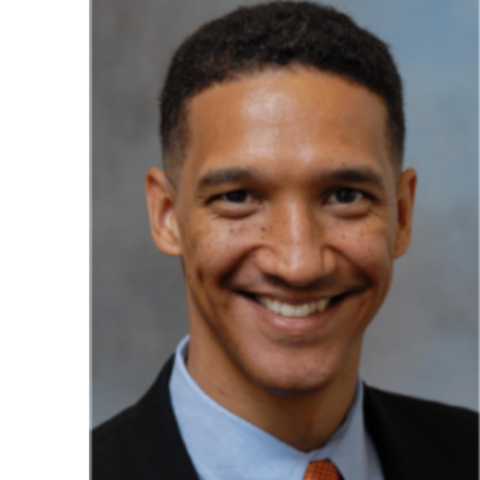
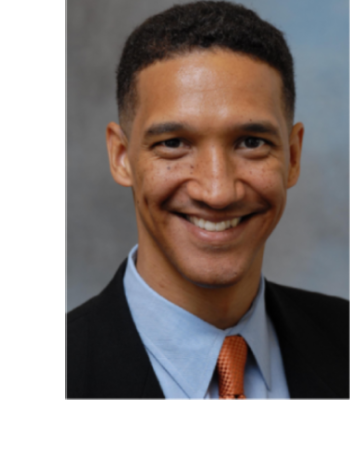
Bio
Dr. Christopher Warlick is the Department Head for the Department of Urology and is an Associate Professor who treats several urologic cancers, with an emphasis on prostate cancer. Dr. Warlick has a busy prostate cancer practice and is a nationally recognized leader on Active Surveillance for low risk prostate cancer, while performing robotic-assisted laparoscopic radical prostatectomies for men requiring definitive therapy. Dr. Warlick has ongoing research focusing on the use of MR imaging in prostate cancer, the development of novel tests to help determine early signs of disease progression, and on programs to increase the use of shared decision making around PSA screening and prostate cancer treatment decision making.
Contact
Address
B542 Mayo420 Delaware St SE
Minneapolis, MN 55455
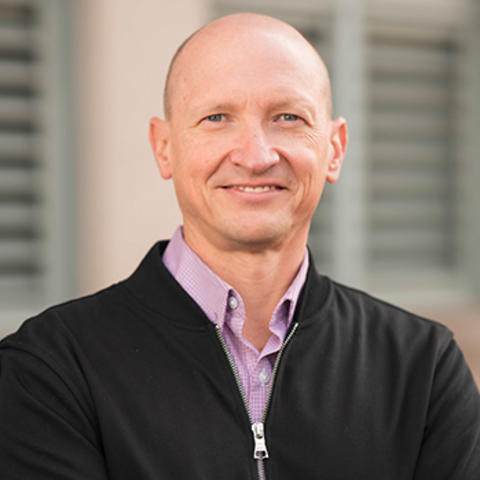
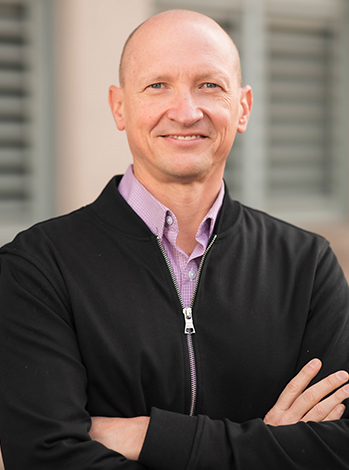
Bio
Dr. Wickman is a Frederick and Alice Stark Endowed Chair, a Full Professor and Head of the Department of Pharmacology. He received his BA in Chemistry (summa cum laude) from Saint Olaf College in Northfield, MN. Subsequently, he earned his PhD in Molecular Neuroscience (advisor: Dr. David Clapham) from the Mayo Foundation for Biomedical Research in Rochester, MN. Following postdoctoral training at Mayo Clinic Scottsdale (advisor: Dr. Sandra Gendler) and Children's Hospital/Harvard Medical School in Boston, MA (advisor: Dr. David Clapham), he accepted a tenure-track faculty position (Assistant Professor) in Pharmacology at the University of Minnesota in 1999. He was promoted to Associate Professor in 2005, and Professor in 2011. He currently holds the titles of Distinguished University Teaching Professor and Distinguished McKnight University Professor.
Research Summary
Research in the Wickman lab centers on mechanisms controlling the excitability of cells in the heart and brain. Dysregulation of cell excitability contributes to many debilitating and/or life-threatening medical conditions, including cardiac arrhythmias, epilepsy, anxiety, depression, schizophrenia, Down Syndrome, addiction, and pain. The Wickman lab seeks to obtain detailed understanding of molecular mechanisms that regulate cell excitability, so that safer and more effective strategies to treat these medical problems can be envisioned and developed. Investigators in the Wickman lab are currently using approaches in electrophysiology, neuromodulation, genetic manipulation, intracranial pharmacology, cardiac physiology, and behavioral assessments relevant to addiction, anxiety, learning, and pain to understand the physiological and pathophysiological relevance of inhibitory signaling pathways.
Contact
Address
2-107 Nils Hasselmo Hall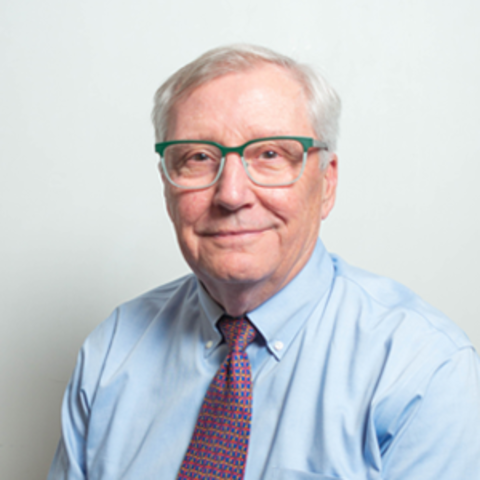
Bio
Administrator Info
Name: GI Division
Phone: 612-625-8999
Email: gidivision@umn.edu
Mail: 420 Delaware ST SE, MMC 36, Minneapolis, MN 55455
Summary
Dr. John R. Lake is a Professor of Surgery and Medicine. He is the Section Head for Hepatology in the Department of Medicine. He is also the Executive Medical Director for Solid Organ Transplantation at the University of Minnesota Medical Center. He also serves as senior staff for liver at the Scientific Registry of Transplant Recipients. He received his medical degree from the University of Minnesota Medical School and completed his residency and fellowship training at the University of California, San Francisco. Prior to moving to the University of Minnesota in 1998, he helped start and was the Medical Director of the Liver Transplant Program at the University of California, San Francisco. Dr. Lake's research interests include liver allocation, predictors of outcomes following liver transplantation and the development of new treatments for patients with liver disease. He has authored more than 258 articles and more than 27 book chapters. He is a past Editor for the journal Liver Transplantation and is on the Editorial Boards for several other scientific journals. In addition, Dr Lake is a past-president of the American Society of Transplantation. He is a past-president of the Organ Procurement and Transplant Network. He is also the past-chair of the American Board of Internal Medicine Test and Policy Committee on Transplant Hepatology.
Research Summary
- Liver transplant allocation
- Predictors of outcomes following liver transplantation
- Development of new treatments for patients with liver disease
Clinical Summary
Liver disease; Liver transplantation
